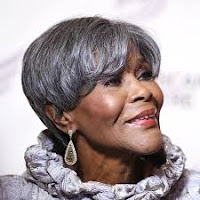The school district I used to work for had a special word for difficulties:
probletunities. This was intended to give the idea that problems were opportunities for growth or improvement.
To me, the term
probletunities seems so very glib, so shmaltzy, as if we should be glad of the barriers or struggles or failures we encounter in our jobs or our relationships or just in our daily lives; that they should be celebrated as chances to grow and improve. "Yippee!" we might say, "I burnt the roast for tonight's dinner and our guests will be here in twenty minutes. Now I have a chance to improve myself by solving this problem!" Or "Hooray! I hit the accelerator instead of the brake and ran into this brick wall. I'm so glad I now have the opportunity to grow as I have the car towed and struggle to find the money for repairs. I know this will ultimately make me a better person." Not likely for most of us.
I dislike the term
probletunities, but I do applaud the sentiment. Although it seems counter-intuitive, it is true that we learn more from mistakes or struggles than from successes.
As a parent, grandparent, and educator, I have observed this to be true, yet it is still difficult to allow those we care about to go through difficulties. Not only do we not want to engage in struggles or experience failures ourselves, but we don't want our loved ones to, either. One of the characteristics almost all parents have in common is that they want the best for their children. We want them to have happy, healthy lives, so we do our best to smooth out the rough spots for them. By not allowing them to experience the common struggles in life and working toward solutions, we may be setting them up to be less responsible, less diligent, less appreciative.
Most of the teachers I have known (and that is a lot!) are, by nature, "helpers". They have a deep desire to nurture and help people, particularly children. Unfortunately, this can lead to being too helpful. It is very common for students to complain about a task being too hard. Our first instinct is to swoop in and help. Rather, we should allow a little reasonable struggle, providing just enough support. This builds persistence, confidence, willingness to try new things. If we are never given the opportunity to try things that are just a little harder than what we have already mastered, how will we ever grow and learn? Everything we ever accomplish as human beings comes about because we have tried something just a little bit harder than what we did before or we have experienced some sort of problem that has forced us to come up with a better way of doing things.
I have seen an increase in what I label "learned helplessness" in children, both in classrooms and with their parents. While I don't think we should go out of our way to make things difficult for children, I do think it is easy to overdo the rescuing we are inclined to do. In my previous life as an assistant principal, I dealt with many parents who were determined not to allow their children to undergo any type of negative consequences for misbehavior. I often told them that it was better to allow children to experience (and survive) small punishments for small infractions when they were young (and, hopefully, learn the concept of cause and effect from it) than to experience those same lessons when they were older, their mistakes were larger, and the punishments more severe.
So, while I don't really like the term
probletunities, I do embrace the idea that we learn best by experiencing and overcoming trials and by stretching ourselves to reach just a little bit farther than we were able to yesterday.









